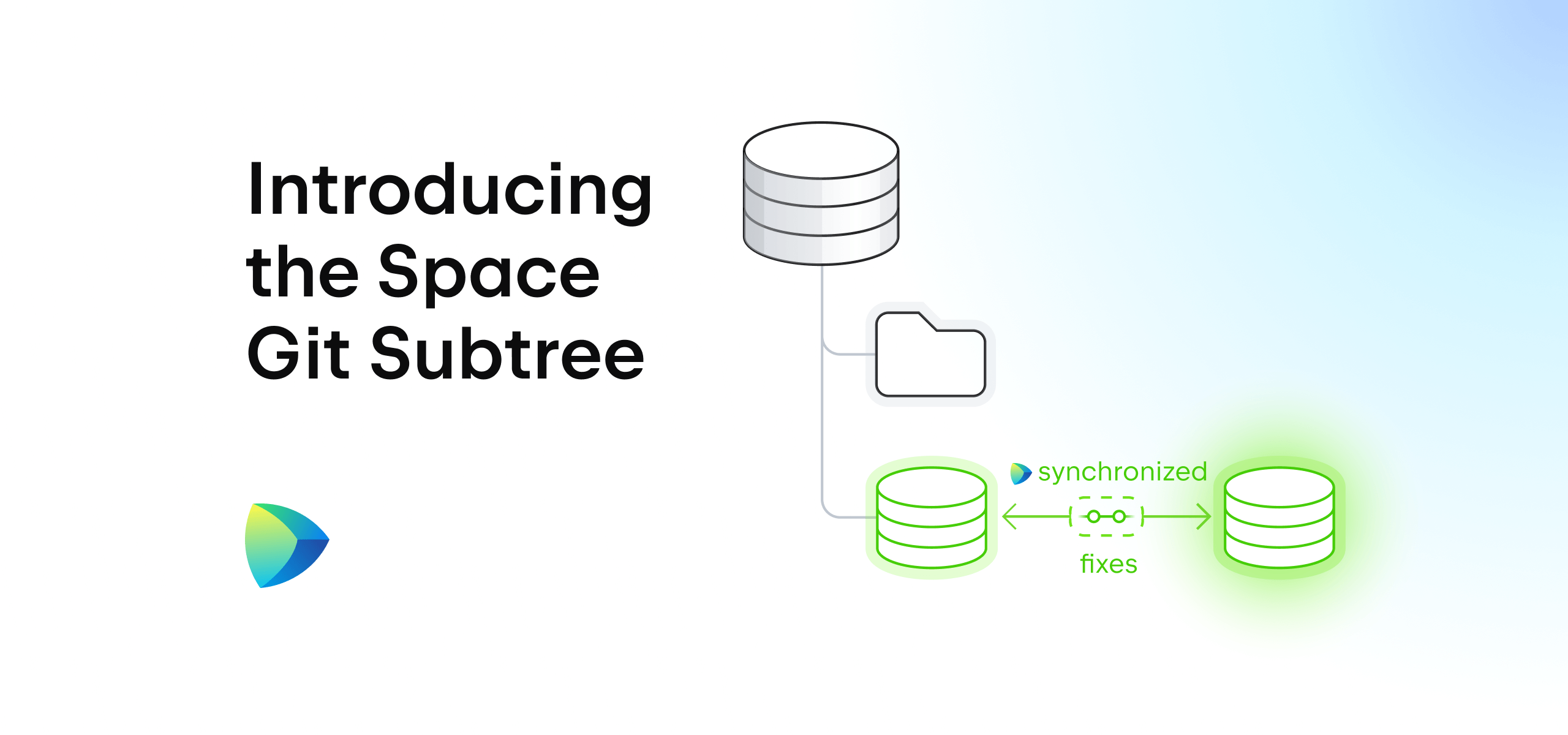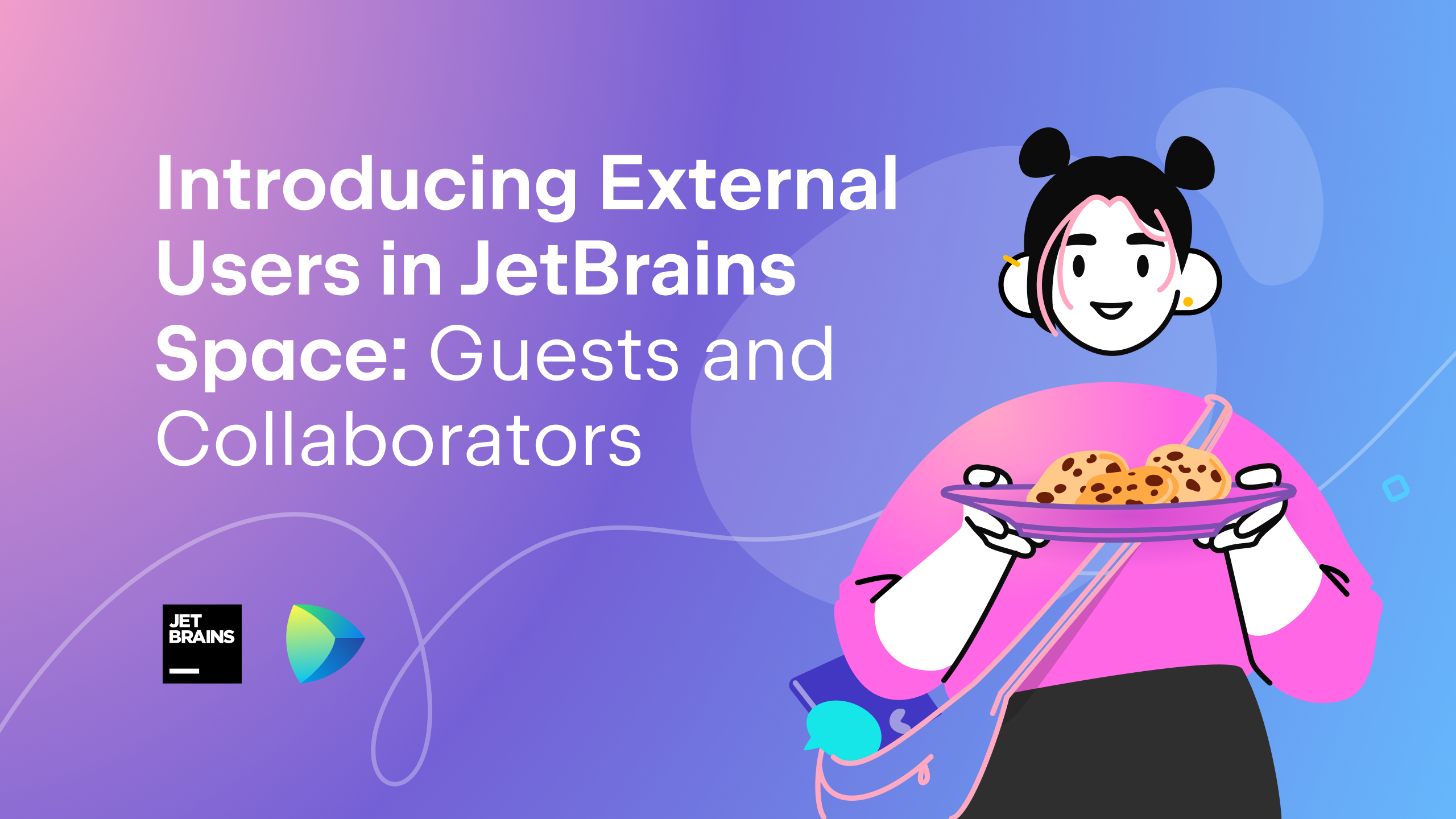Space
The intelligent code collaboration platform
Space and SpaceCode will be discontinued on June 1, 2025. Learn more → →
Space Product Updates in February 2022
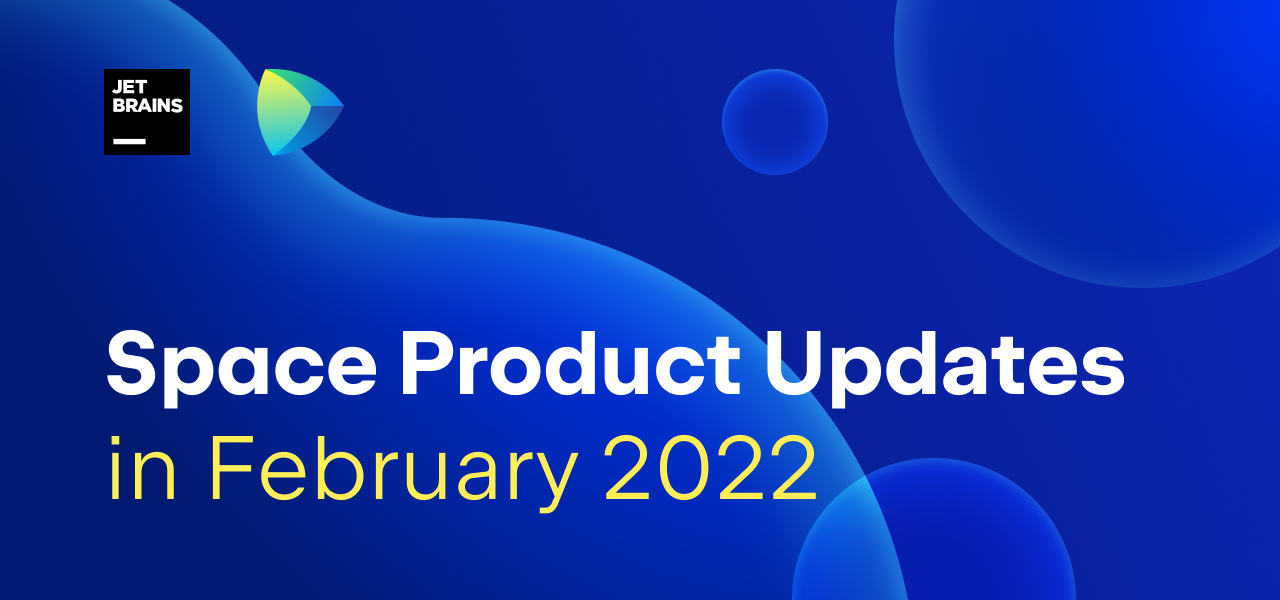
You can learn about all the latest updates on the Space What’s New page.
Did you miss any of the latest Space product updates? To help you to catch up, we’ve compiled a list of the features released in Space in February 2022, along with explanations of how to use them.
Read through this blog post to learn about what was added to Space last month.
- Issues
- Applications
- Automation
- Package management
Issues
Break complex issues down into smaller tasks with sub-items
You can now add sub-items to Space issues. They allow you to break complex issues down into smaller tasks, or list requirements, DoDs, and other relevant information.
Just like checklists, sub-items can have a nested structure, and you can check them off upon completion.
You’ll find the new Sub-items section under the issue description. To add a sub-item, click Add item and start typing. You can then leave the sub-item as a simple line of text, which can be formatted with Markdown, or you can convert it into an issue and assign it to any team member right away. You can also add an existing issue as a sub-item by clicking on the ✳ icon.
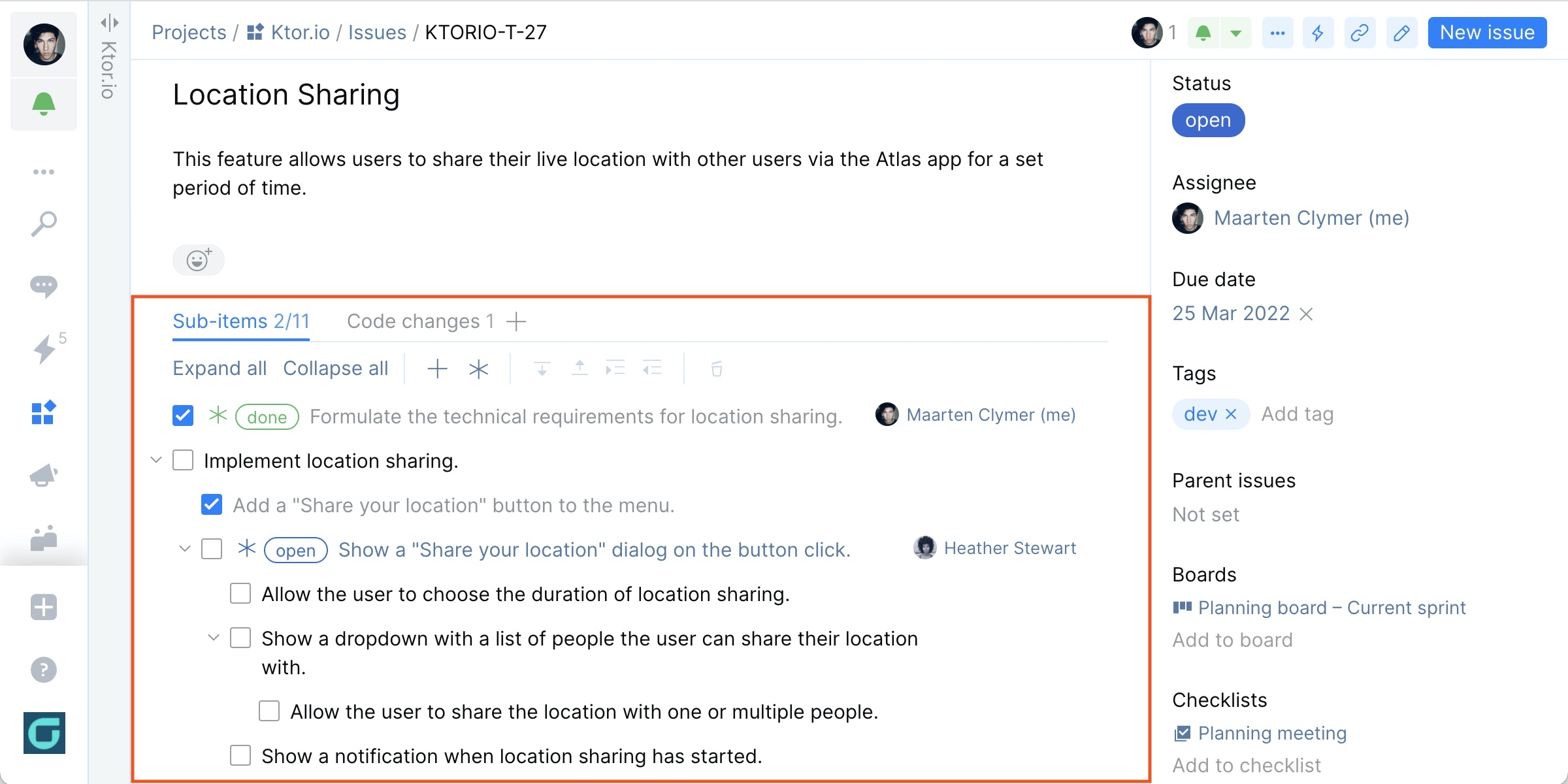
Check out this article to learn more about how to use sub-items in issues.
Track all mentions from the issue history
To make sure that you don’t miss anything important, we’ve made it easier to track any mentions and discussions related to your tasks in Space.
Whenever somebody mentions an issue by its ID or link in a Space chat channel, code review comment, or another issue, the mention is automatically reflected in the issue’s history. This way, you can be sure no important discussions go missing and you always have the full context.
Here’s an example. A chat message that contains an issue ID is copied to the mentioned issue:
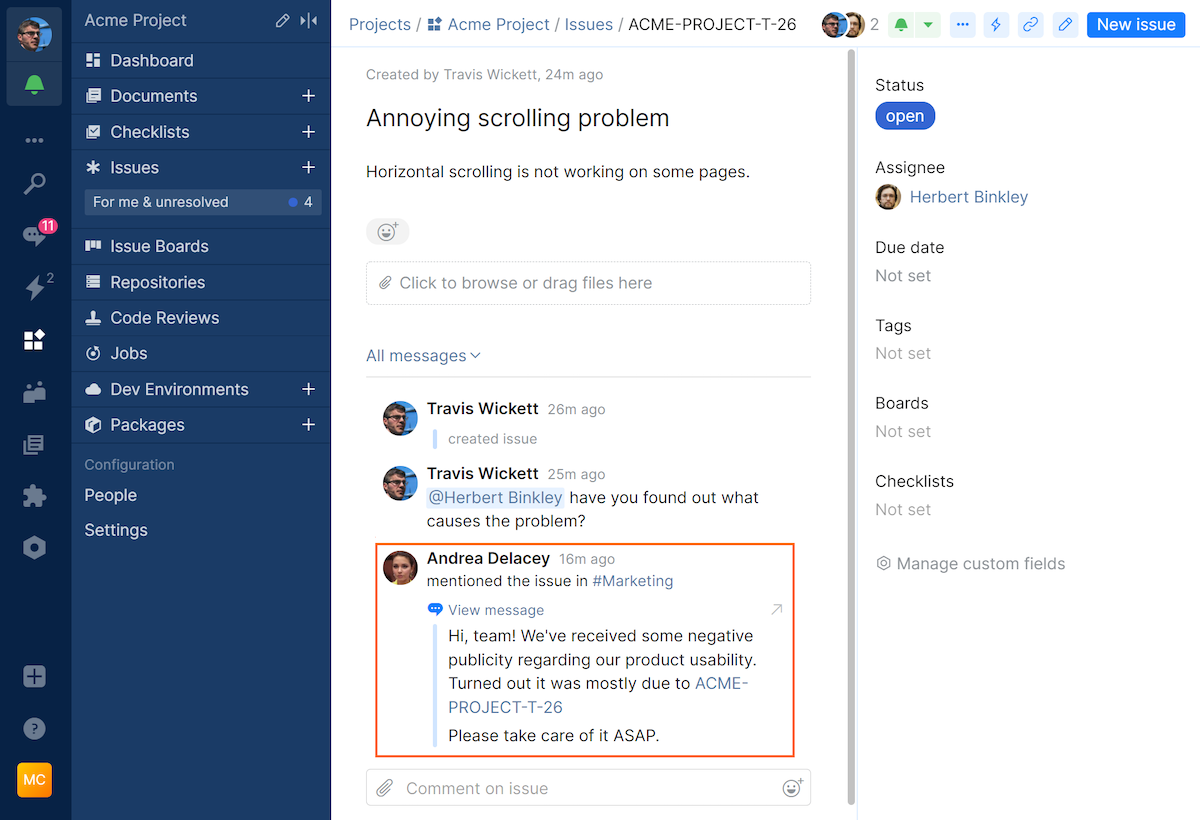
The following rules ensure that private messages don’t end up being made public. Space will NOT post mentions originating from:
- Direct messages
- Conversations
- Private channels
- Projects the owner of the mentioned issue does not have access to
Code review comments from a public project will be posted, but details will be only visible to project members who have access to the project repository.
Read this article to learn how to comment on issues.
Filter issues by board and sprint
You can now search for issues even faster – use the new Board filter on a project’s issues list to filter by board and sprint.
Head to this article to learn how to use issue boards.
Applications
Allow your Space applications to access private chat channels
Thanks to the new application authorization options, you can now allow your Space applications to access private channels in Space chats. We’ve also added an option to specify what your application can do within a particular private or public channel. For example, you can allow an application to view and post messages, update channel info, add new members, and more. This level of granularity in the permissions helps you keep your communication private by ensuring that the application can only access the information you allow it to.
To set chat channel permissions, head over to your application’s Authorization page | In-context Authorization, select the chat channel where you want to authorize your application, and choose the permissions you want to grant to it. You can also authorize the application from the chat channel by going to Channel info | Applications.
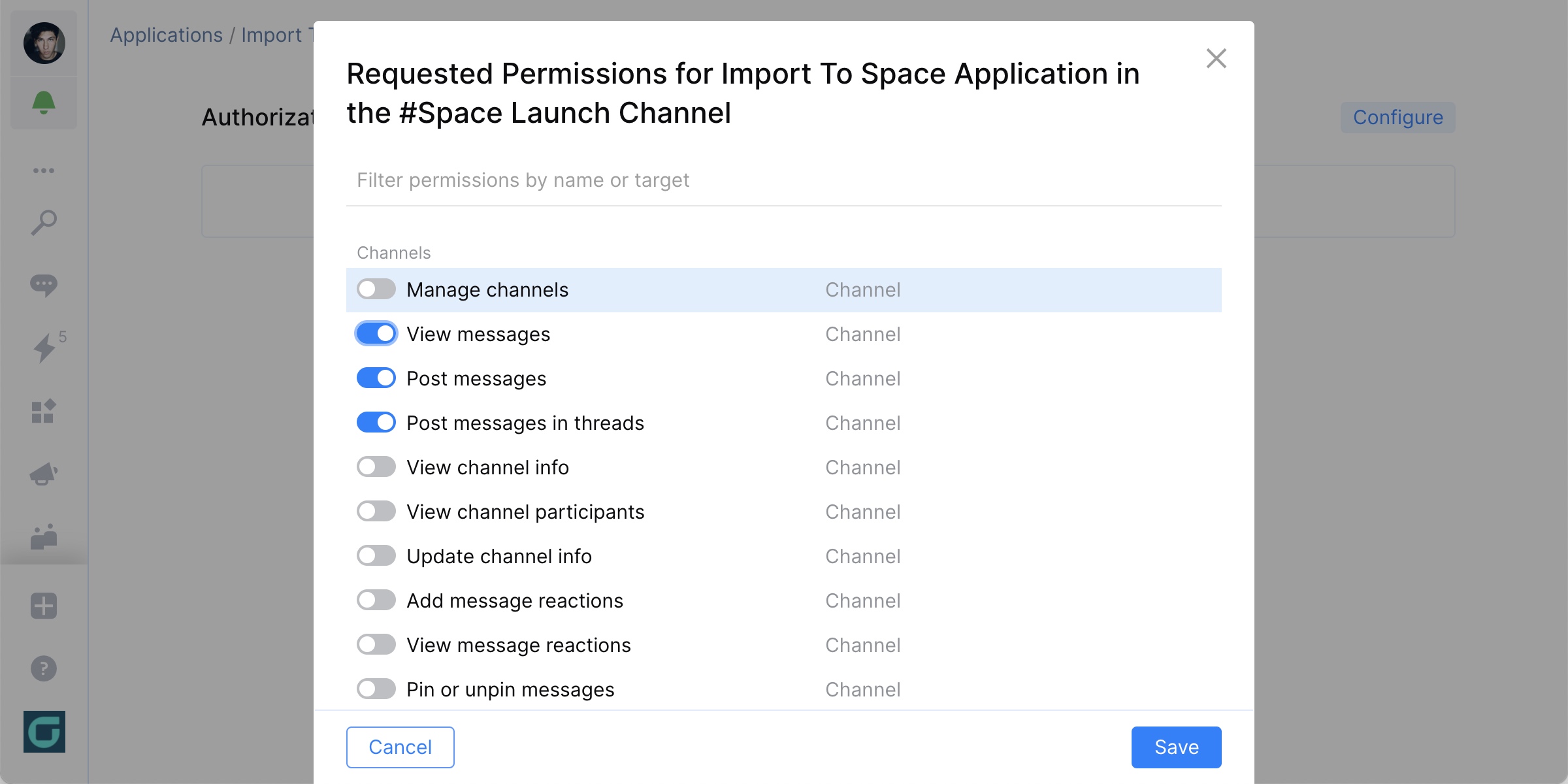
Please note that only channel administrators can grant chat channel permissions. Other users can request permissions from the channel administrators.
Currently, applications don’t need authorization to access public chat channels, but we will introduce this requirement in one of the upcoming Space updates.
Take a look at this article to learn how to grant permissions to your application.
Automation
Support for Vault secrets in Space Automation
Space Automation now supports HashiCorp Vault storage, allowing you to use secrets stored in a Vault server in your Automation jobs.
Simply add a connection to the Vault server, create a parameter, and use it as if it were an ordinary parameter stored in Space.
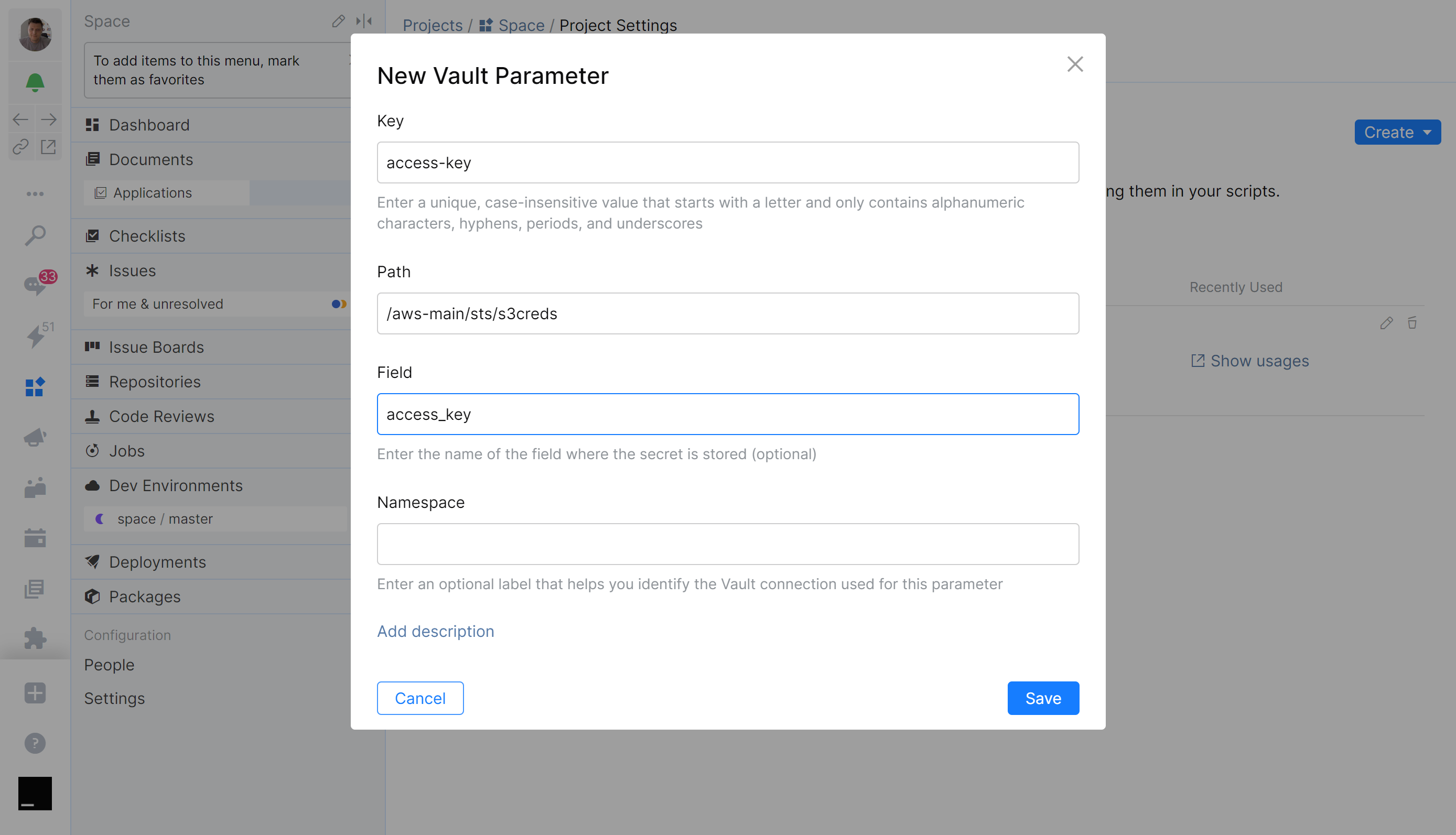
Read this article to learn more about the update, and discover how to use Vault secrets in Space Automation.
Package management
Integrate Space Packages with remote repositories
We’re introducing mirroring for Space Packages! With this update, you can now:
- Manually publish local packages to a remote repository. To publish a package to a remote repository, such as Maven Central, you can now specify a list of related remote repositories for each local one and publish packages to any of them.
- Auto-cache packages from a remote repository. When you reference a package from a mirror repository, Space will download it from the associated remote repository and cache it locally if it’s not available. This feature allows you to simplify referencing packages from remote repositories and optimize network traffic. You can now use a single Space repository to cache all build dependencies from remote repositories.
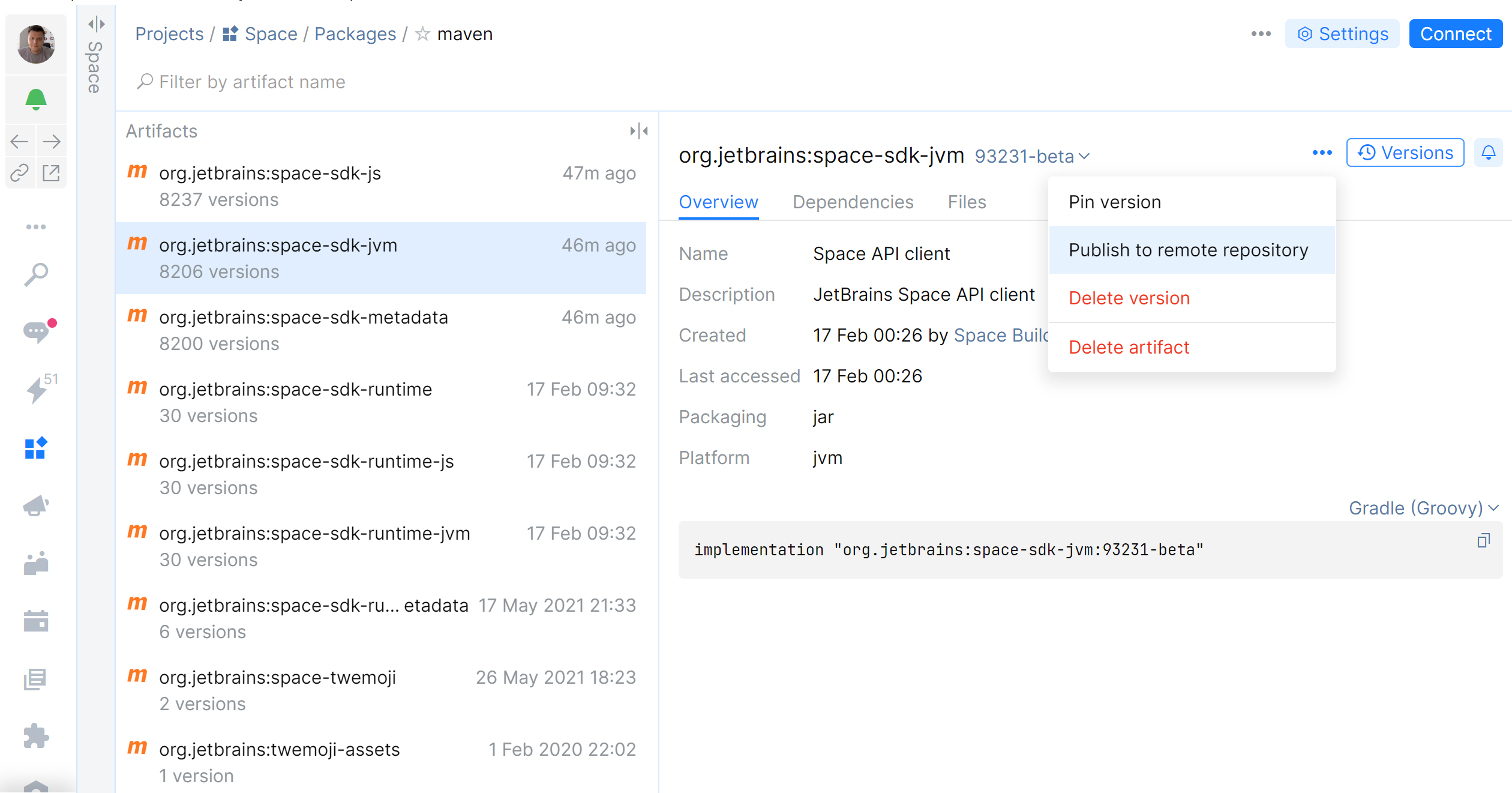
Read this article to learn how to use mirror remote repositories step by step.
Manage and share Composer packages in Space
Space Packages now lets you create your own Composer repositories. Use them to store and share packages in your PHP projects.
To create a Composer repository, go to your Project | Packages, click on ‘New repository’, and select ‘Composer repository’.
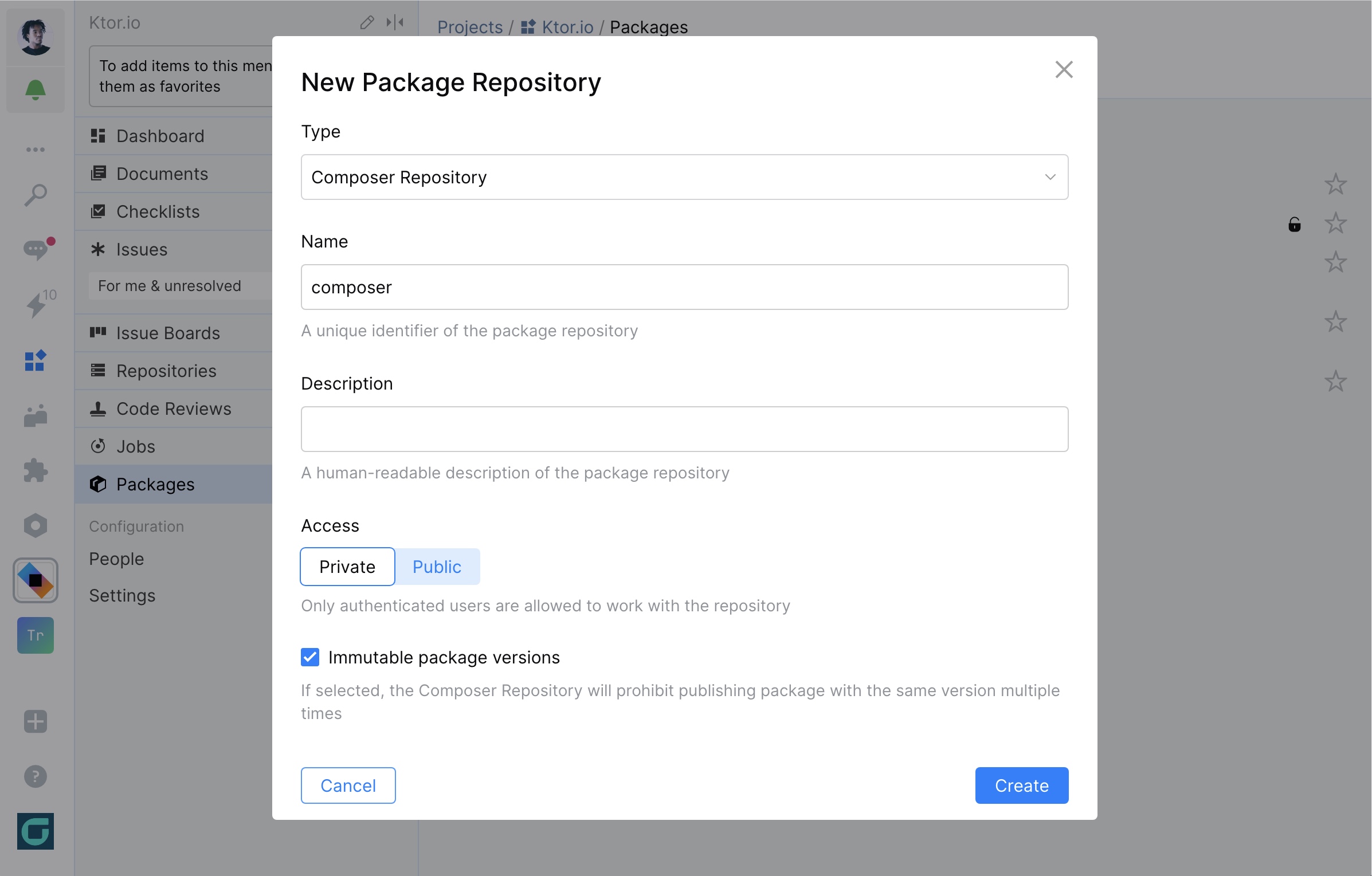
Read this article to learn more about how to create a Composer repository and publish Composer packages.
Subscribe to Space Blog updates






